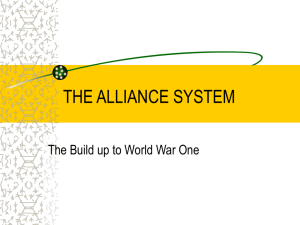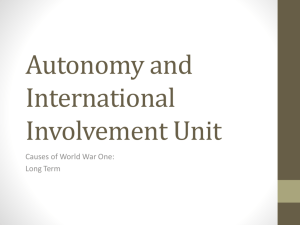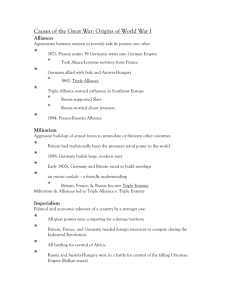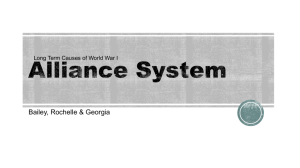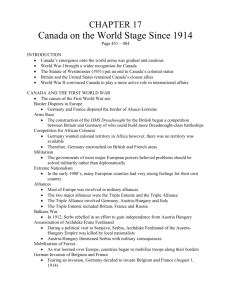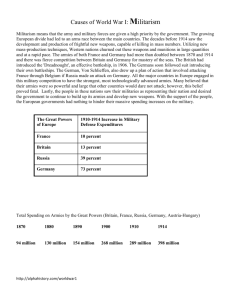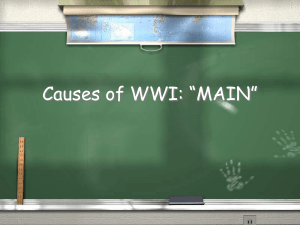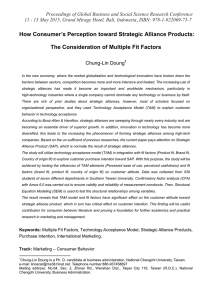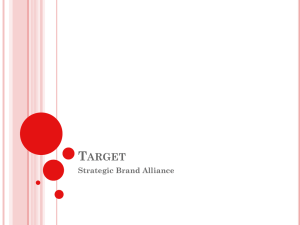Causes of WWI: Graphic Organizer for High School Students
advertisement
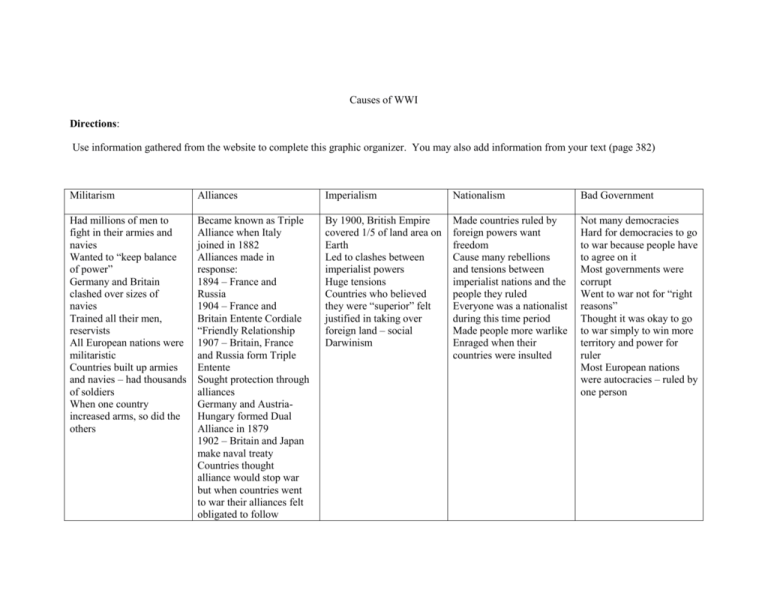
Causes of WWI Directions: Use information gathered from the website to complete this graphic organizer. You may also add information from your text (page 382) Militarism Alliances Imperialism Nationalism Bad Government Had millions of men to fight in their armies and navies Wanted to “keep balance of power” Germany and Britain clashed over sizes of navies Trained all their men, reservists All European nations were militaristic Countries built up armies and navies – had thousands of soldiers When one country increased arms, so did the others Became known as Triple Alliance when Italy joined in 1882 Alliances made in response: 1894 – France and Russia 1904 – France and Britain Entente Cordiale “Friendly Relationship 1907 – Britain, France and Russia form Triple Entente Sought protection through alliances Germany and AustriaHungary formed Dual Alliance in 1879 1902 – Britain and Japan make naval treaty Countries thought alliance would stop war but when countries went to war their alliances felt obligated to follow By 1900, British Empire covered 1/5 of land area on Earth Led to clashes between imperialist powers Huge tensions Countries who believed they were “superior” felt justified in taking over foreign land – social Darwinism Made countries ruled by foreign powers want freedom Cause many rebellions and tensions between imperialist nations and the people they ruled Everyone was a nationalist during this time period Made people more warlike Enraged when their countries were insulted Not many democracies Hard for democracies to go to war because people have to agree on it Most governments were corrupt Went to war not for “right reasons” Thought it was okay to go to war simply to win more territory and power for ruler Most European nations were autocracies – ruled by one person
